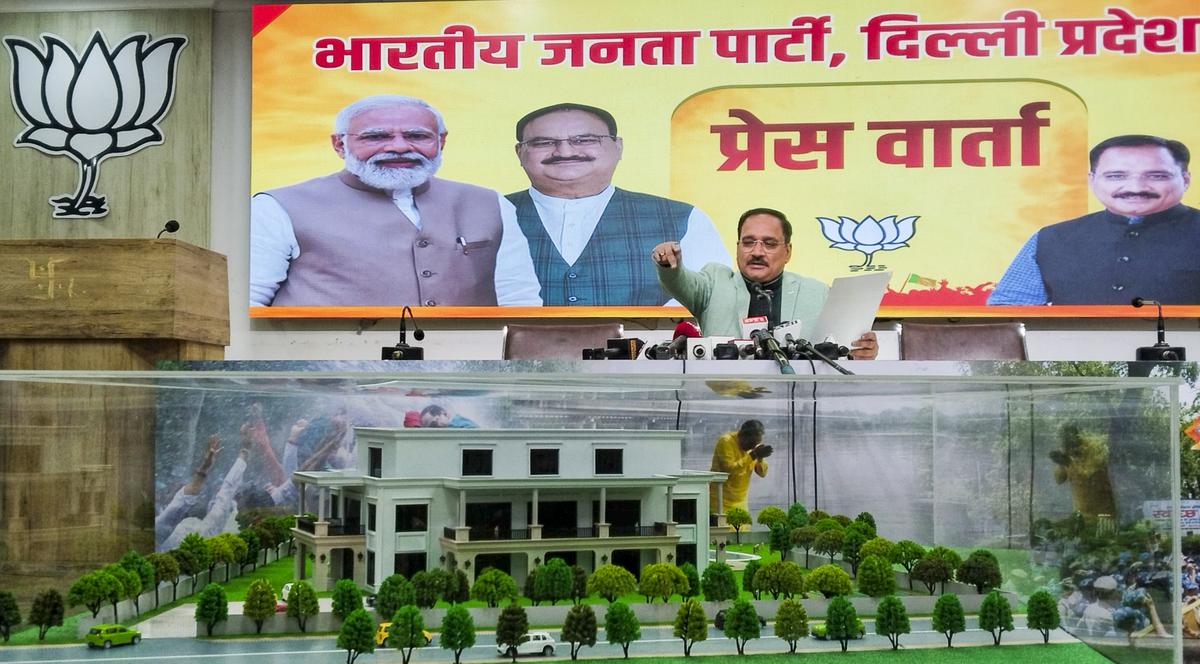
According to the BJP, the CAG report raises 139 questions regarding the renovation's financial management. The initial proposal by the Public Works Department (PWD) on March 17, 2020, estimated the cost at ₹7.9 crore. However, the tender released shortly thereafter was for ₹8.6 crore, indicating an immediate increase of 13.2%. The project, completed in 2022, reportedly cost ₹33.6 crore, a 342% escalation from the original estimate.
Delhi BJP President Virendra Sachdeva contends that the actual expenditure is even higher. He suggests that when accounting for additional items and furnishings acquired in 2023 and 2024, the total cost could be between ₹75 crore and ₹80 crore. Sachdeva asserts that certain expenses were concealed, preventing a full accounting in the CAG report.
BJP national spokesperson Sambit Patra has criticized the rapid approval process for the renovation. He notes that the PWD's proposal was accepted within a day, raising concerns about the transparency and due diligence of the process. Patra also highlights the lack of competitive bidding in selecting construction consultants, suggesting that spot quotations were used without proper advertising.
The BJP has labeled the renovated residence as "Sheesh Mahal," implying opulence inconsistent with Kejriwal's public persona as a champion of austerity and transparency. Party leaders argue that such lavish spending is particularly egregious given the economic hardships faced by citizens during the COVID-19 pandemic, when the renovation took place.
In response, the Aam Aadmi Party (AAP) has dismissed the BJP's allegations as politically motivated. AAP spokesperson Sanjay Singh accused the BJP of using forged documents to malign Kejriwal's image ahead of the upcoming Delhi Assembly elections. Singh maintains that all expenditures were within legal bounds and that the renovation was necessary due to the dilapidated condition of the previous structure.
The controversy has become a focal point in the lead-up to the Delhi Assembly elections, with both parties using the issue to galvanize support. The BJP argues that the alleged financial improprieties reflect a broader pattern of corruption and mismanagement within the AAP administration. Conversely, AAP contends that the BJP is resorting to baseless accusations to divert attention from its own shortcomings.
The CAG report, which has yet to be tabled in the Delhi Assembly, reportedly details several irregularities, including:
- Doubtful selection of consultants: The report suggests a lack of transparency in hiring construction consultants, with no advertisements issued for competitive bidding.
- Frequent revision of estimates: The project's cost estimates were reportedly revised multiple times, leading to significant budget escalations.
- Use of higher specifications: The inclusion of items with higher specifications than initially approved contributed to the increased costs.
These findings have prompted calls from the BJP for a thorough investigation into the expenditure. They demand accountability for what they describe as a misuse of taxpayer funds. The party has also questioned the ethical implications of such spending during a period when many citizens were facing economic challenges due to the pandemic.
The AAP, however, maintains that the renovation was conducted transparently and in accordance with all regulatory requirements. They argue that the BJP's focus on this issue is a strategic distraction from more pressing concerns affecting Delhi residents. The party has urged voters to consider their track record in areas such as education, healthcare, and public services when casting their ballots.
As the election approaches, the debate over the "Sheesh Mahal" is likely to remain a contentious issue. Both parties are expected to continue leveraging the controversy to sway public opinion and gain a competitive edge. The outcome may hinge on which narrative resonates more with the electorate: concerns over fiscal responsibility and integrity, or accusations of political mudslinging and distraction.
The Election Commission is set to announce the dates for the Delhi Assembly elections, signaling the commencement of a high-stakes political battle. Observers anticipate that the "Sheesh Mahal" controversy will feature prominently in campaign strategies, debates, and public discourse in the weeks to come.
In the meantime, the residents of Delhi await further developments, keenly observing how their leaders address the allegations and counter-allegations. The controversy underscores the importance of transparency, accountability, and ethical governance in maintaining public trust.
